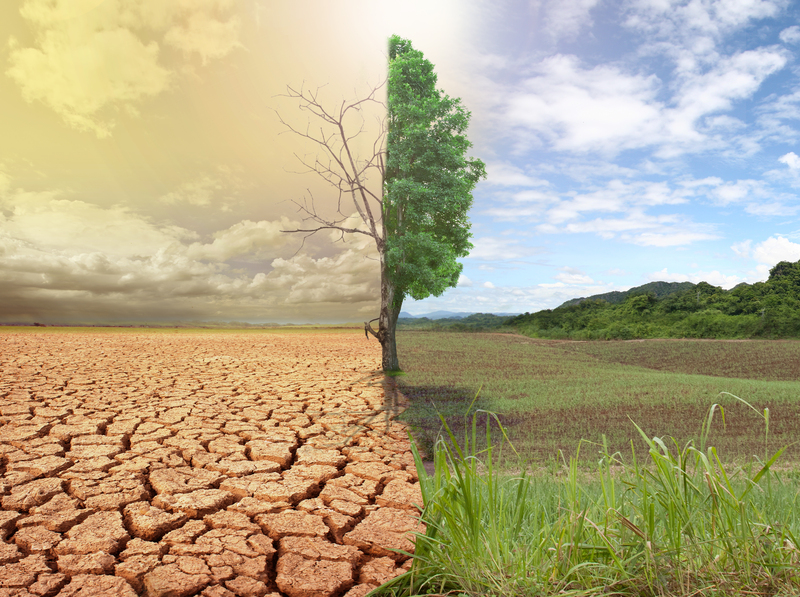Community-Friendly Methods to Manage PPE Waste
The COVID-19 pandemic has accelerated the use of Personal Protective Equipment (PPE)--face masks, gloves, gowns, and face shields--across all sectors. While these items are crucial for health and safety, their improper disposal poses a significant environmental threat and public health challenge. Therefore, communities worldwide need community-friendly methods to manage PPE waste efficiently and sustainably. This article explores practical, effective, and eco-friendly ways for communities to handle PPE waste, mitigate environmental harm, and protect public health.

Understanding the Scope of PPE Waste in Communities
Before delving into community-based PPE waste management techniques, it's vital to understand the scope of the issue:
- Increased Volume: The use of disposable PPE has soared, with billions of single-use masks and gloves disposed of every month.
- Environmental Threat: PPE often ends up as litter in streets, parks, and water bodies, leading to microplastic pollution and harm to wildlife.
- Public Health Risks: Improper disposal of PPE exposes sanitation workers and the general population to potential infection.
Proper PPE waste management at the community level is essential to reduce these risks and ensure a cleaner, safer environment for all.
Why Community Action Matters in PPE Waste Management
Communities play a pivotal role in controlling the flow of mask and glove litter. Collective efforts not only help safeguard the environment but also foster a culture of responsibility and sustainability. Community-friendly methods of PPE waste disposal rely on public awareness, participation, and support from local authorities.
Main Benefits of Community-Driven PPE Waste Solutions
- Reduces environmental impact by preventing harm to wildlife and water sources.
- Prevents the spread of infection by minimizing contact with contaminated PPE.
- Encourages innovative local solutions better suited to specific regional needs.
- Fosters a sense of collective responsibility and community pride.
Best Community-Friendly Methods for PPE Waste Management
1. Setting Up Dedicated PPE Collection Bins
Installing dedicated PPE waste bins in public places, such as entrances to supermarkets, hospitals, public transport hubs, schools, and parks, is an easy yet effective way to collect used PPE separately. These bins should be:
- Clearly labeled: Use signs and vivid colors to distinguish PPE bins from general waste.
- Strategically placed: Position bins where PPE use is frequent and make them easily accessible.
- Secure and covered: To prevent scattered waste and minimize the risk of contamination.
Local councils and neighborhood associations can collaborate to maintain these bins and organize regular collections with proper disposal protocols.
2. Educating and Engaging the Community
Education is key in building sustainable habits. Communities should:
- Run awareness campaigns about the environmental hazards of improper PPE disposal.
- Distribute informational materials explaining correct disposal procedures for masks and gloves.
- Organize clean-up events involving local volunteers and organizations.
Engagement through schools and local events helps reinforce responsible practices, especially among young people. The more people understand the consequences, the more likely they are to take action.
3. Promoting the Use of Reusable PPE
One of the most effective community-friendly approaches to PPE waste reduction is encouraging the use of reusable masks and face shields whenever possible.
- Reusable fabric masks can significantly cut down on waste, provided they meet safety standards.
- Local workshops or sewing circles can help produce and distribute reusable PPE to those in need.
- Publicize care instructions for washing and maintaining reusable PPE.
Not all PPE can be replaced by reusables--medical settings may require disposables--but for the general public, switching to reusable options dramatically reduces the amount of single-use waste in the community.
4. Supporting PPE Recycling Initiatives
PPE recycling technology is evolving, with innovative programs turning disposable masks and gowns into new products like park benches, building materials, or road surfacing. Communities can:
- Partner with specialized recycling companies: Some firms offer collection and recycling services for PPE waste.
- Establish community drop-off points specifically for recyclable masks and gloves.
- Promote upcycling ideas such as using clean mask earloops in craft projects.
Though not all types of PPE are recyclable, supporting these eco-friendly PPE waste management methods helps cut landfill contributions and promotes circular economy principles at the local level.
5. Safe Handling and Disposal Guidelines
To minimize infection risk during PPE disposal, communities must observe safe practices:
- Wear gloves and avoid touching the front of masks or gloves when handling used PPE.
- Seal PPE waste in a bag or container before placing it in collection bins.
- Wash or sanitize hands immediately after disposing PPE.
Disseminating these guidelines through posters, social media, and local bulletins ensures consistent, safe behavior at the grassroots level.
6. Encouraging Manufacturer Take-Back Programs
Extended Producer Responsibility (EPR) is a growing trend, placing responsibility on PPE manufacturers to manage post-consumer waste. Communities can:
- Liaise with PPE suppliers to set up local take-back schemes or drop-off points for used PPE.
- Support policies and incentives encouraging manufacturers to design more recyclable PPE.
- Raise awareness about EPR programs in the community.
By holding producers accountable, communities can drive the shift towards sustainable PPE waste management solutions directly at the source.
Community Case Studies: Real-World Success Stories
PPE Waste Collection Drives in Italy
In several Italian cities, local councils joined forces with environmental groups to set up dedicated PPE bins across popular neighborhoods. Volunteers conducted regular street sweeps, dramatically reducing mask litter and raising public awareness about correct disposal.
Mask Upcycling in Canada
A grassroots initiative in Montreal partnered with recycling firms to collect masks and convert them into plastic pallets used for construction. The project not only addressed the PPE waste problem but also sparked local jobs and innovation.
Reusable PPE Advocacy in India
Educational programs in Mumbai schools promoted reusable cloth face coverings and distributed starter packs to families. This initiative led to a marked decrease in single-use PPE litter while keeping the community protected.
Challenges in Community PPE Waste Management
While there are plenty of community-friendly PPE waste management methods, there are also ongoing challenges:
- Lack of awareness about the correct handling and disposal of PPE waste.
- Insufficient infrastructure for safe PPE collection, segregation, and recycling.
- Limited funding and resources for community-led initiatives.
- Contamination risks that complicate recycling efforts.
Addressing these barriers requires joint efforts from local governments, non-profits, businesses, and residents.
How Individuals Can Contribute to Community-Friendly PPE Waste Management
Every person plays a crucial role in keeping their community safe, clean, and eco-friendly. Here are some simple steps you can take:
- Always dispose of PPE in designated bins, never litter in streets or natural areas.
- Opt for reusable PPE when possible and maintain it properly.
- Participate in or organize local clean-ups targeting mask and glove litter.
- Educate your family, friends, and neighbors about the impacts of improper PPE waste disposal.
- Encourage businesses and institutions to join or start PPE recycling programs in your area.
The Future of Community PPE Waste Management
The pandemic has taught us the importance of resilience and adaptability. Managing PPE waste in a community-friendly manner will remain crucial, not just for current health emergencies but also for ongoing environmental stewardship. The future will likely see:
- Wider adoption of biodegradable and recyclable PPE products.
- Expansion of recycling infrastructure to safely process contaminated waste.
- Increased collaboration between public, private, and civic sectors for holistic waste solutions.
- Continued education and innovation at the grassroots level.
Conclusion: Taking Collective Action for a Cleaner Community
Community-friendly methods to manage PPE waste are essential for safeguarding public health and our planet. By working together to set up dedicated collection points, promote reusable PPE, support recycling initiatives, educate the public, and advocate for manufacturer responsibility, neighborhoods can make a significant impact.
Remember: every mask, glove, or gown that is disposed of responsibly is a step toward a healthier, cleaner future. By embracing and sharing these best practices at the community level, we can all play a part in solving the PPE waste challenge. Let's lead by example, inspire our neighbors, and create resilient, sustainable communities for generations to come.

Frequently Asked Questions (FAQ) on Community PPE Waste Management
What is the most eco-friendly way to dispose of PPE?
Always use dedicated PPE bins where available or follow local guidelines to ensure PPE is securely bagged before disposal. Opt for reusable PPE where safe and practical.
Can PPE items be recycled?
Some masks and gloves can be recycled via specialized programs. Check with local waste authorities or recycling firms about current options in your area.
Is burning PPE waste a community-friendly solution?
Burning PPE is not recommended at the community level as it can release harmful toxins. Instead, focus on proper disposal, recycling, and reusable alternatives.
How can communities fund PPE waste programs?
Grants, public-private partnerships, crowdfunding, and local government support can all help fund bins, recycling initiatives, and educational campaigns for PPE waste management.
Resources & Further Reading
- World Health Organization (WHO): PPE waste guidelines
- US Environmental Protection Agency (EPA): COVID-19 waste management resources
- Nature Article: The environmental toll of COVID-19 PPE
Together, we can overcome the PPE waste challenge--one mask at a time!